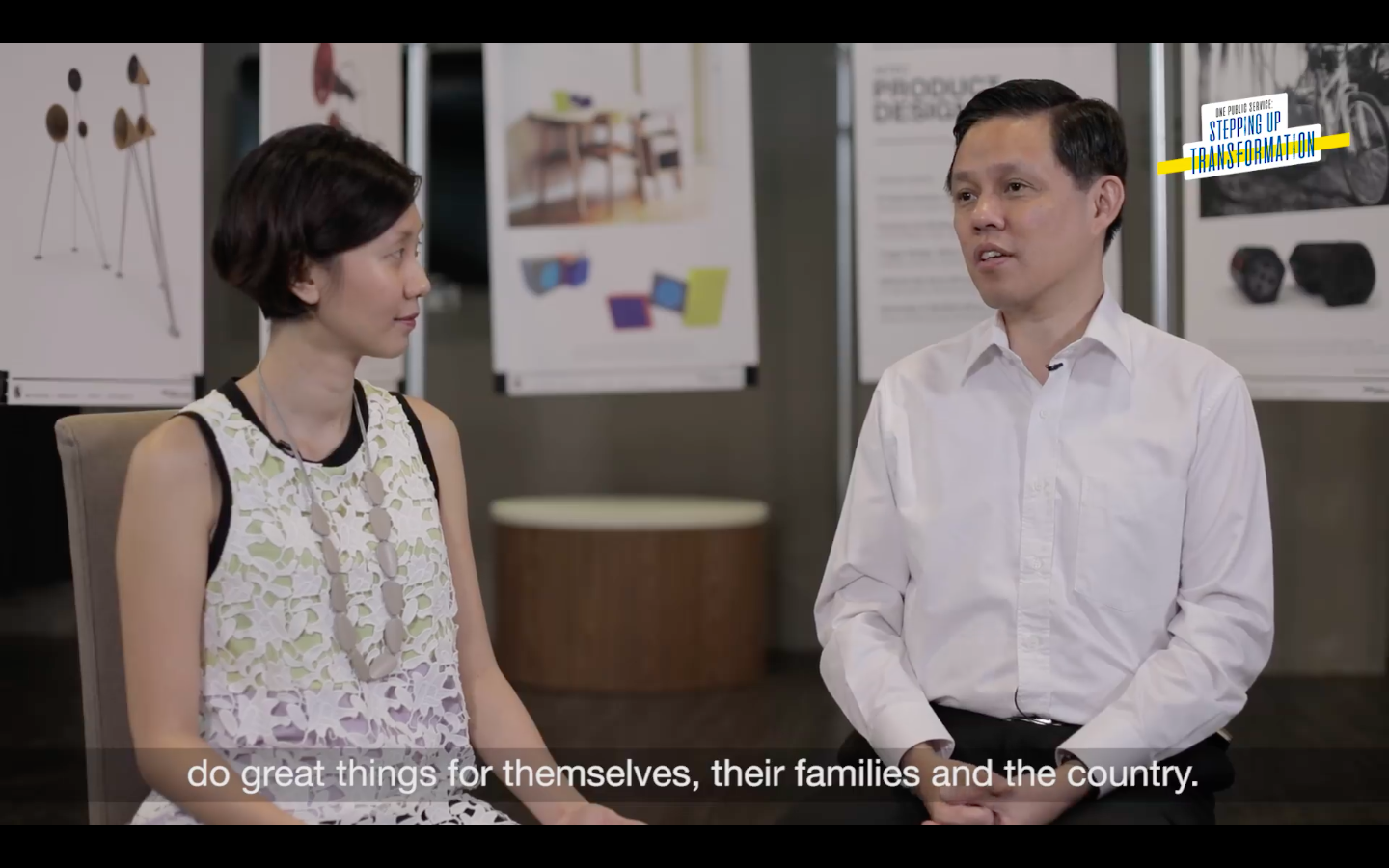Singapore’s public service embodies a remarkable irony: for all the exhaustive bureaucracy it’s steeped in, it doesn’t know how to communicate in specifics.
From parliamentary speeches to social media messaging, trying to decipher what public servants mean is akin to walking blindfolded into a thick fog without a cane, hoping you’ll eventually find your way out the other side. More often than not, even the best navigator ends up simply more lost than ever.
If wording is more precise, one is usually able to make intelligent guesses about the various ways that a policy aims to empower different sectors of society. But not before one has to suffer through Olympic-standard mental gymnastics figuring out what platitudes like “mobilise the nation” and “a better Singapore for future generations” truly entail.
The thing with motherhood statements, however, is that they are vague and feel-good enough that it’s near impossible for anyone to find fault with them.
Unsurprisingly, the theme for this year’s Public Service Week is “One Public Service: Stepping Up Transformation”, a catch-all that somehow manages to sound both ambitious yet ambiguous, reinforcing the public service’s track record of speaking without saying anything.
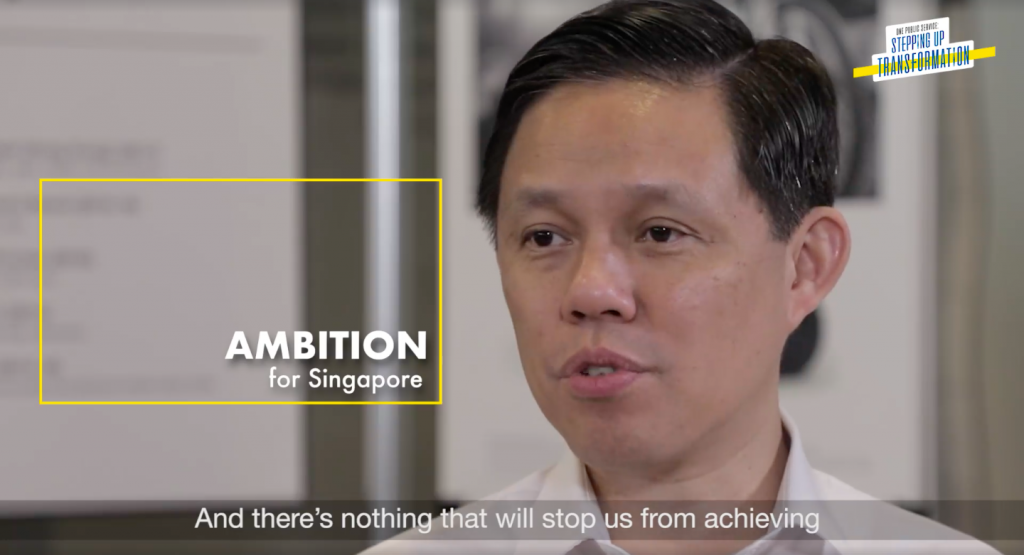
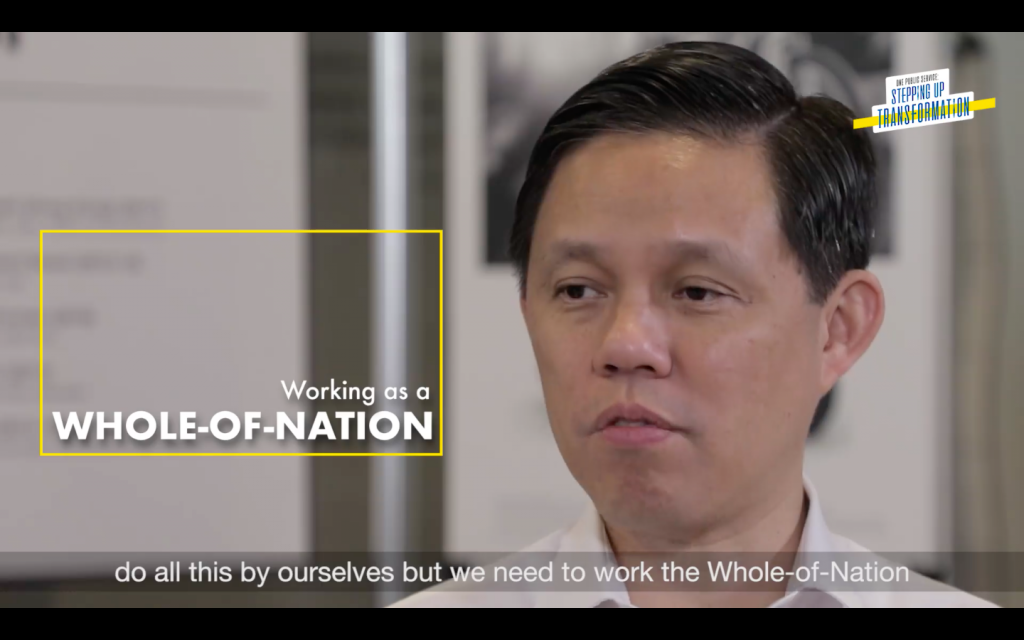
It aims to satisfy radical changemakers, while remaining pleasant enough to soothe the more conservative crowd.
In a video posted by the Public Service Division to kick off the week, Minister-in-charge of the Public Service Chan Chun Sing conveys the four main points that the public service should embrace in order to “transform”. First, ambition for Singapore; second, working as Whole-of-Nation (don’t ask me why this is capitalised or hyphenated); third, staying humble; finally, determination and discipline in serving the nation.
These are palatable principles that anyone would unlikely oppose, but it’s also anyone’s guess how the public service plans to put these into action.
No doubt a three-minute video is sufficient enough to hammer home at least one quantifiable and actionable method for each point.
For example, “ambition for Singapore” could mean getting all public service agencies to migrate all paperwork online by 2020, while “determination and discipline” may mean that every public complaint must now go through two more rounds of vetting to help the member of public solve their issue.
Instead, we are pacified with truisms that could have just as easily come from the Budget, a National Day Rally, or a primary school model composition.
Chan Chun Sing says, “If we maintain a high level of ambition of what we want to achieve for Singapore, and are determined and disciplined in doing our best for Singapore, then there is absolutely nothing that we cannot achieve together. The key is ‘together’.”
He adds, “When we stay humble we will remind ourselves that we can never do all this by ourselves, but we need to work the Whole-of-Nation whereby we mobilise the entire nation to walk the journey with us. And if we can do that, then there’s really nothing stopping us from building an even better Singapore for generations to come.”
Sure it is an inspiring message. Yet only insofar as it makes me feel like taking action, but not actually doing so. Because what am I actually supposed to do? I have no idea.
Even if more specific messaging may have been passed down within the public service itself, it would’ve been heartening (and good PR) to see the transparency that the public service preaches trickle down to language itself.
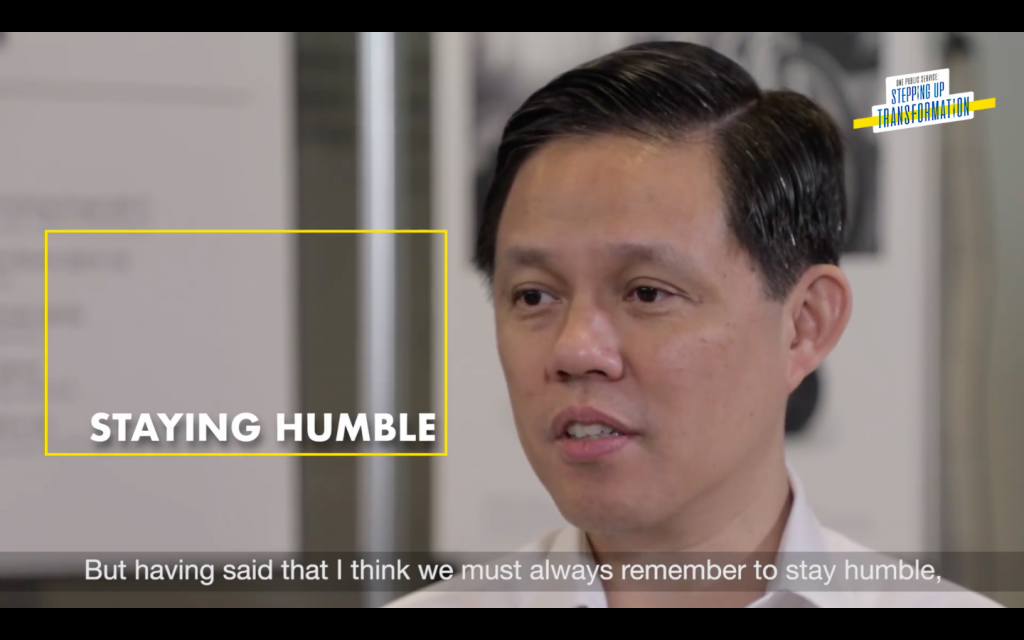
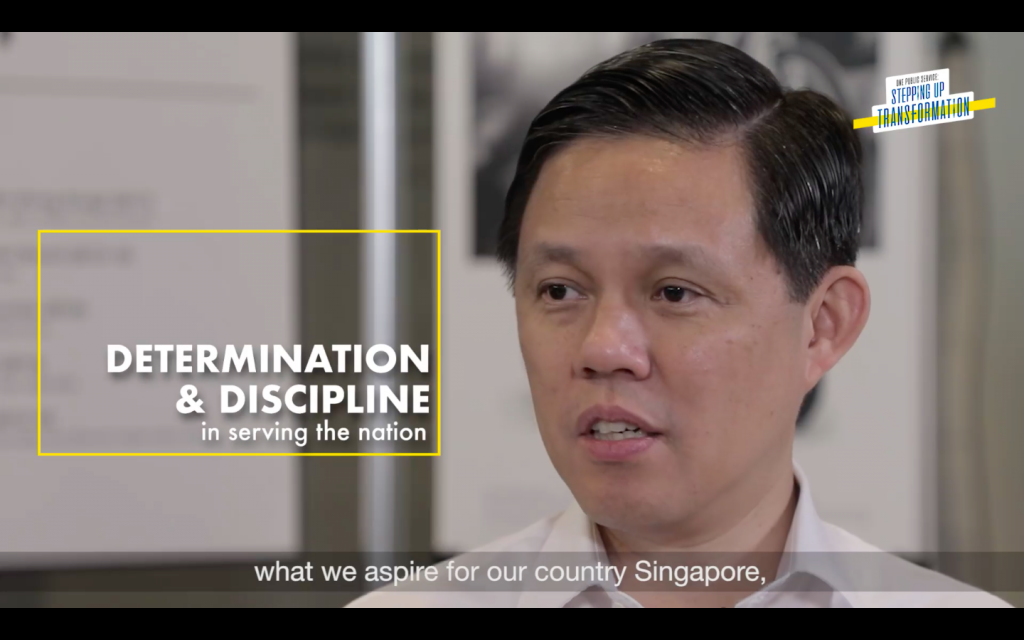
Last month, the Straits Times implored ministers to “please speak plainly to the people”, effectively stating that earnest parliamentary speeches may be well and good, but they are unable to relate to the man on the street.
I suggest taking ‘plain speak’ a step further if ministers and the public service alike hope to connect with average Singaporeans. Instead of just speaking plainly, the public service should speak succinctly.
If you have ever tried to break up with someone, you know that being simultaneously brief and clear is no mean feat. Nonetheless it’s a worthwhile endeavour to get rid of cliches.
As part of Public Service Week, a convention titled “Digital Government for a Smart Nation” will be held to “inspire citizens to embrace digitisation”. Yet you just need to look at the queues of people still forming at banks to transfer hard cash to suspect being a “Smart Nation” was an ambition once invented by someone living in an ivory tower. It’s almost laughable trying to run when we aren’t even interested in walking.
Furthermore, dishing out platitudes has a tendency to make one avoid communicating distinct goals. Because of their ‘motivational’ nature, they can also make one feel as though they have already accomplished something, when in fact there have been no action nor results yet.
While this jargon doesn’t just show up in the public service, public servants can’t expect Singaporeans to do as they say and not as they do. So if the public service wants Singaporeans to take them seriously, then spare us the bullshit.
Most of us are pragmatic people who don’t care about “transformation”, “staying humble”, or any of these theoretical concepts. Rather, we care about whether they translate into practical results that affect our bread and butter.
What I want to know as an ordinary Singaporean is the timeline that the public service is aiming to operate on to amend the education policies to reflect the dynamic world in which our children will grow up in. I want to understand the specific tactics the government has employed to enable environmentally conscious behaviour across all levels of society. I want to be informed on the “additional platforms” the public service will use to consult my views on housing before enacting any policies.
And so, if I may amend this year’s Public Service Week slogan, I hereby propose: “One Public Service: Communicate Clearly, Get Twice the Work Done in Half the Time”.

